0.1
Confecciones
La Montaña
Confecciones La Montaña es un proyecto productivo perteneciente a la Cooperativa Multiactiva para el Desarrollo Económico y Social del Norte de Antioquia (COOMULDESNA), ubicada en el Antiguo Espacio Territorial de Capacitación y Reincorporación (AETCR) Jhon Bautista de Anorí, Antioquia. Esa cooperativa fue fundada por 80 excombatientes que se unieron a finales del 2017 para crear una forma de economía solidaria que les permitiera sostenerse económicamente y continuar con su proceso de reincorporación.
Confecciones La Montaña fue dado a conocer a inicios del 2019 y está conformado por 24 asociados. Este proyecto aprovecha los saberes adquiridos por los excombatientes durante la época de confrontación, puesto que sus miembros pertenecían a la sastrería del Frente 36 de las FARC que elaboraba uniformes, bolsos y otros implementos de alta calidad para suplir las necesidades del grupo armado. Al completar el proceso de dejación de armas, decidieron aprovechar este conocimiento y convertirlo en una fuente de ingresos que les permitiera continuar con el proceso de reincorporación. Su canal de comercialización inicial fue el mercado local de Anorí y sus clientes, los campesinos quienes iban al taller y compraban los productos.
Confecciones La Montaña is a productive project that belongs to the Cooperativa Multiactiva para el Desarrollo Económico y Social del Norte de Antioquia -(COOMULDESNA- (Multi-Active Cooperative for the Economic and Social Development of Northern Antioquia), located in the Antiguo Espacio Territorial de Capacitación y Reincorporación -AETCR- (Former Territorial Space for Training and Reincorporation) Jhon Bautista de Anorí, Antioquia. This cooperative was founded by 80 ex-combatants who joined together at the end of 2017 to create a form of solidarity economy that would allow them to sustain themselves economically and continue their reincorporation process.
Confecciones La Montaña was announced at the beginning of 2019 and has 24 associates. This project takes advantage of the knowledge acquired by the ex-combatants during the confrontation period, since its members belonged to the tailoring shop of the 36th Front of the FARC, which produced high quality uniforms, bags, and other implements to meet the needs of the armed group. Upon completing the process of laying down their arms, they decided to take advantage of this knowledge and turn it into a source of income that would allow them to continue with the process of reincorporation. Their initial commercialization channel was the local market in Anorí and their clients, the farmers who went to the workshop and bought the products.

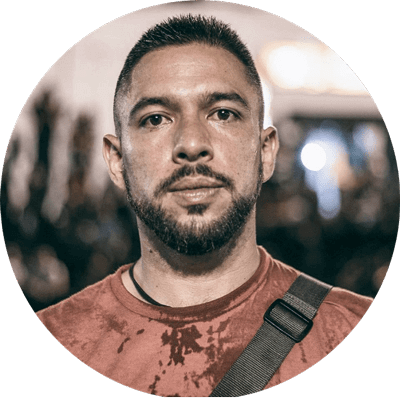
Martín Batalla



Today, they have four work areas: a production area, located in the AETCR and in charge of making the products; a marketing area, located in Medellín and responsible for product distribution and customer service; an administration area for the workshop; and finally, the management area, which plays the role of managing and interacting with different actors.
Confecciones La Montaña has managed to position itself as a national reference in the field of business for peace, so much so that with the support of Inexmoda they participated in the 2020 edition of Colombiamoda, one of the most important fashion events in the country. This positioning is the result of its products reception in the social networks, its main commercialization channel at national and international level. This has allowed them to obtain greater income, which has not only benefited the project, but the AETCR in general, due to the fact that these resources finance general maintenance issues in the context
For Martín Batalla, peace means solving the structural causes that gave rise to the armed confrontation, such as access to land, stigmatization, and political participation, among others. Confecciones La Montaña is contributing to this issue, since, in the first place, it is generating conditions for successful reincorporation. In addition, they are beginning to contribute to the economic development of the region and to create economic alternatives to the territories affected by the conflict.
Hoy cuentan con cuatro áreas de trabajo: una productiva, ubicada en el AETCR y encargada de confeccionar los productos; una de comercialización, ubicada en Medellín y responsable de la distribución del producto y el servicio al cliente; una de administración del taller y por último, la gerencia, que cumple el papel de gestión y relacionamiento con distintos actores.
Confecciones La Montaña ha logrado posicionarse como un referente nacional en el ámbito de los negocios para la paz, tanto así que con el apoyo de Inexmoda participaron en la edición 2020 de Colombiamoda, uno de los eventos de moda más importantes en el país. Este posicionamiento se debe a la acogida de sus productos en las redes sociales, su principal canal de comercialización a nivel nacional e internacional. Esto les ha permitido obtener mayores ingresos, los cuales no solo han beneficiado al proyecto, sino al AETCR en general, debido a que estos recursos financian temas de mantenimiento general en el espacio.
Para Martín Batalla, La paz significa solucionar las causas estructurales que dieron origen a la confrontación armada como el acceso a tierras, la estigmatización y la participación política, entre otros, y desde Confecciones La Montaña están aportando a este tema, pues, en primer lugar, están generando condiciones para una reincorporación exitosa. Además, están comenzando a aportar al desarrollo económico de la región y a crear alternativas económicas a los territorios afectados por el conflicto.
“La paz significa solucionar las causas estructurales que dieron origen a la confrontación armada como el acceso a tierras, la estigmatización y la participación política”
“Peace means solving the structural causes that gave rise to the armed confrontation, such as access to land, stigmatization, and political participation”
+ Confecciones La Montaña
+
0.2
Selva Nevada
Selva Nevada es una empresa que rescata la biodiversidad de la selva colombiana a través de la comercialización de helados, batidos y pulpas de frutas amazónicas y tropicales. La empresa fue creada por los hermanos Catalina y Alejandro Álvarez y sus socios, Antonuela Ariza y Mario Fernando Rojas, como una idea de aprovechamiento de experiencias previas que los hermanos Álvarez habían adquirido en su vida personal y laboral. Los viajes a territorios alejados en los que los hermanos acompañaron a su padre en sus labores de geógrafo, además de su paso por el sector público en trabajos de cooperación internacional para el desarrollo rural, les permitieron conocer buena parte de las regiones y asociaciones productivas rurales, identificando los principales retos y oportunidades que tenían con sus productos.
En el año 2000 empezaron los primeros acercamientos a las asociaciones que no podían comercializar sus productos por cuestiones relacionadas a la precariedad de vías y compradores o por estar en medio de dinámicas propias del conflicto armado. Los socios identificaron la necesidad de mercado de los emprendimientos rurales de pulpa de fruta y empezaron a comercializar inicialmente con restaurantes en Bogotá. Siete años más tarde, en 2007, Antonuela Ariza, socia de la iniciativa y chef del restaurante Mini-mal, sugirió la idea de experimentar en la creación de productos como helados y malteadas a base de la pulpa de fruta producida por las comunidades. A partir de ese momento, dejaron de ser exclusivamente comercializadores de pulpa de frutas y se constituyeron legalmente como Selva Nevada, teniendo una línea comercial de pulpa, pero también una oferta en productos derivados como helados, batidos y otros que se comercializaban en tres puntos de venta físicos ubicados en Bogotá.
Selva Nevada is a company that rescues the biodiversity of the Colombian rainforest through the commercialization of ice cream, milkshakes, and pulps of Amazonian and tropical fruits. The company was created by the brothers Catalina and Alejandro Álvarez and their partners, Antonuela Ariza and Mario Fernando Rojas, as an idea to take advantage of previous experiences that the Álvarez brothers had acquired in their personal and professional lives. The trips to remote territories in which the brothers accompanied their father in his work as a geographer, in addition to their time in the public sector in international cooperation work for rural development, allowed them to get to know a good part of the regions and rural productive associations, identifying the main challenges and opportunities they had with their products.
In 2000, the first contacts were made with associations that were unable to market their products because of the precariousness of the roads and buyers, or because they were in the midst of the dynamics of the armed conflict. The partners identified the market need for rural fruit pulp enterprises and began marketing initially with restaurants in Bogotá. Seven years later, in 2007, Antonuela Ariza, a partner in the initiative and chef at the Mini-mal restaurant, suggested the idea of experimenting in the creation of products such as ice cream and milkshakes based on the fruit pulp produced by the communities. From that moment on, they stopped being exclusively commercializers of fruit pulp and legally constituted as Selva Nevada, having a commercial line of pulp, but also an offer in derived products such as ice cream, milkshakes and others that were commercialized in three physical points of sale located in Bogotá.




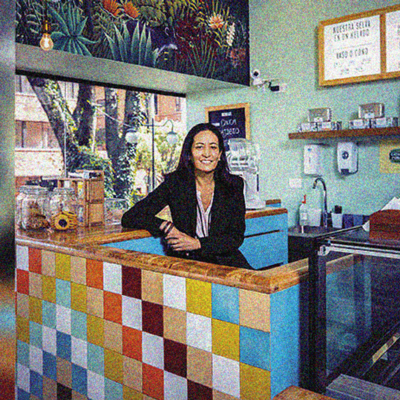
Catalina
Álvarez


“Mucha gente termina en la guerra porque no tiene otra motivación o sueño por cumplir, cuando uno crea y construye empresa a partir de estas frutas, lo que quieren las comunidades es que haya paz para que esto se mantenga”
“Many people end up in war because they have no other motivation or dream to fulfill, when one creates and builds a company from these fruits what the communities want is for there to be peace so that this can be maintained”

El objetivo de Selva Nevada es articular la oferta de las asociaciones productoras de pulpa de fruta regionales con diferentes compradores en Bogotá, bajo los principios de responsabilidad social y sostenibilidad ambiental. Productos como el camu camu, açaí, arazá, copoazú y corozo se derivan de acuerdos comerciales que la empresa ha consolidado con asociaciones productivas en los departamentos de Amazonas, Putumayo, Caquetá, Guaviare, Chocó, Sucre, entre otros.
En la dotación de nuevas máquinas o cuartos fríos, Selva Nevada descuenta de los pagos un porcentaje para compensar la dotación de los mismos. Lo anterior, dado a su filosofía de entender a las comunidades no como beneficiarias, sino como socias de la empresa. Así, busca establecer una relación de aliados en igualdad de condiciones con las asociaciones, en la que todos los involucrados en la cadena de valor arriesguen y ganen por igual. Con esta filosofía no solo se modifican las relaciones tradicionales que las asociaciones tenían con anteriores programas donde estaban en la posición de beneficiarios, sino que al convertirse en socios se transforma el imaginario de cómo las asociaciones se perciben a sí mismas en sus obligaciones y beneficios y cómo la comunidad percibe su trabajo. También han tratado de hacer que las asociaciones sean sostenibles por sí mismas consiguiéndoles otros clientes, para que no dependan únicamente de las compras realizadas por Selva Nevada.
En materia de sostenibilidad ambiental, desde Selva Nevada se generan incentivos para la reforestación con la compra de productos no maderables, contribuyendo a que el número de bosque y árboles crezca en las fincas de sus asociados. Adicionalmente, las formas en las que la fruta es obtenida en los territorios es guiada por buenas prácticas en materia de sostenibilidad con el fin de no alterar el equilibrio del terreno ni de la fauna que se alimenta de los frutos.
Today, they have four work areas: a production area, located in the AETCR and in charge of making the products; a marketing area, located in Medellín and responsible for product distribution and customer service; an administration area for the workshop; and finally, the management area, which plays the role of managing and interacting with different actors.
Confecciones La Montaña has managed to position itself as a national reference in the field of business for peace, so much so that with the support of Inexmoda they participated in the 2020 edition of Colombiamoda, one of the most important fashion events in the country. This positioning is the result of its products reception in the social networks, its main commercialization channel at national and international level. This has allowed them to obtain greater income, which has not only benefited the project, but the AETCR in general, due to the fact that these resources finance general maintenance issues in the context
For Martín Batalla, peace means solving the structural causes that gave rise to the armed confrontation, such as access to land, stigmatization, and political participation, among others. Confecciones La Montaña is contributing to this issue, since, in the first place, it is generating conditions for successful reincorporation. In addition, they are beginning to contribute to the economic development of the region and to create economic alternatives to the territories affected by the conflict.


+ Selva Nevada
+
0.3
Mesa Nacional
de Café
The National Coffee Table is a space for the women and men articulation in the FARC-EP reincorporation process. They have been betting on collective or individual productive projects through coffee in any of its lines. The initiative involves 35 coffee cooperatives at the national level, most of which are formally linked to ECOMUN. The Table was created with the aim of guaranteeing the reincorporation of ex-combatants and their families in the long term through the creation of a figure that unifies and brings together the needs of the regional coffee cooperatives, commercially linking the products of each one with commercial allies.
The space had its origins in 2017 in the department of Cauca where four cooperatives were carrying out processes of planting and processing coffee in the municipalities of Buenos Aires, Miranda, Argelia and Caldono. During the process, the ex-combatants created a figure of coordination and articulation of the cooperatives of the department and by 2018 the Table managed to position itself in 10 departments: Valle del Cauca, Cauca, Nariño, Cundinamarca, Tolima, Huila, Antioquia, Meta, Cesar, and La Guajira. Although the National Coffee Board has not yet been formalized as an association, it has managed to create spaces for coordination among the 35 cooperatives linked to it.
La Mesa Nacional de Café es un espacio de articulación de hombres y mujeres en proceso de reincorporación de las FARC–EP que vienen apostándole a proyectos productivos colectivos o individuales a través del café en cualquiera de sus líneas. La iniciativa asocia a 35 cooperativas de café a nivel nacional, las cuales en su mayoría están vinculadas formalmente a ECOMUN. La Mesa surge con el fin de garantizar la reincorporación de los excombatientes y sus familias en el largo plazo a partir de la creación de una figura que unifique y recoja las necesidades de las cooperativas regionales cafeteras, enlazando comercialmente los productos de cada una con aliados comerciales.
El espacio tuvo sus orígenes en el 2017 en el departamento del Cauca donde cuatro cooperativas adelantaban procesos de siembra y procesamiento del café en los municipios de Buenos Aires, Miranda, Argelia y Caldono. Durante el proceso los excombatientes crearon una figura de coordinación y articulación de las cooperativas del departamento y para 2018 la Mesa logró posicionarse en 10 departamentos: Valle del Cauca, Cauca, Nariño, Cundinamarca, Tolima, Huila, Antioquia, Meta, Cesar y La Guajira. Aunque la Mesa Nacional de Café aún no está formalizada como figura asociativa, ha logrado generar espacios de coordinación entre las 35 cooperativas vinculadas.

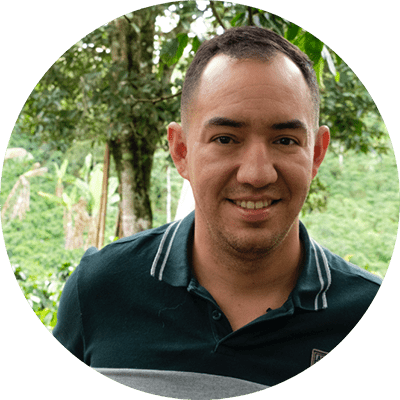
Antonio Pardo




En los últimos años la Mesa ha facilitado la exportación de 600.000 kg de café verde a Italia por parte de las cooperativas vinculadas. Gracias a la calidad del grano ganaron el premio Ernesto Illy al mejor café de Colombia entre 60 muestras y al mejor café del mundo entre otras 14 en 2019. En el mismo año obtuvieron el reconocimiento al sexto mejor catador del país con la participación de tres excombatientes afiliados a la Mesa. El premio Ernesto Illy ha sido el impulso más grande que ha recibido la iniciativa en términos de visibilización y comercialización. Según Antonio Pardo, director y representante de La Mesa Nacional de Café el rescate y aprovechamiento de los saberes ancestrales de las comunidades afro e indígenas locales le ha dado la calidad al café que les permitió alcanzar el reconocimiento.
Por otra parte, las marcas de café tostado que se comercializan nacionalmente están relacionadas con las cuatro regiones donde la Mesa inició su operación: Cauca (Café Sabor La Esperanza), Antioquia (Café Paramillo), Tolima y Huila (Café Tercer Acuerdo y Café Marquetalia) y Meta (Café Marú). Cuando iniciaron el proceso de exportación de café verde a Italia, su producto llevaba el nombre de Café Espíritu de Paz, pero este nombre fue reemplazado por Café Cosecha de Paz, siendo este último el café que se maneja actualmente para exportación con Illy Café a través de un proceso de recolección desde las diferentes cooperativas en las regiones.
In recent years, the Bureau has facilitated the export of 600,000 kg of green coffee to Italy by the linked cooperatives. Thanks to the quality of the bean, they won the Ernesto Illy award for the best coffee in Colombia among 60 samples and for the best coffee in the world among 14 others in 2019. In the same year they obtained recognition as the sixth best cupper in the country with the participation of three former combatants affiliated with the Table. The Ernesto Illy award has been the biggest boost that the initiative has received in terms of visibility and marketing. According to Antonio Pardo, director and representative of the National Coffee Board, the rescue and use of the ancestral knowledge of the local Afro and indigenous communities has given the quality of the coffee that allowed them to achieve this recognition.
On the other hand, the brands of roasted coffee that are marketed nationally are related to the four regions where the Table began its operation: Cauca (Coffee Sabor La Esperanza), Antioquia (Coffee Paramillo), Tolima and Huila (Coffee Tercer Acuerdo and Coffee Marquetalia) and Meta (Coffee Marú). When they started the process of exporting green coffee to Italy, their product was called Coffee Espíritu de Paz, but this name was replaced by Coffee Cosecha de Paz, being this last one the coffee that is currently handled for export with Illy Coffee through a harvesting process from the different cooperatives in the regions.
Within the general elements to highlight of the National Coffee Table, three main ones are highlighted. The first is related to the logic of cooperativism, in which none of the members of the Board of Directors receive a fixed salary, but rather all profits circulate equally in the 10 committees. A second aspect is the capacity to build commercial alliances that guarantee the purchase of coffee in the long term.
"Finally, Antonio points out the significant way in which this initiative contributes to building peace in the regions where it operates. On the one hand, by achieving that the peasants generate feelings of rootedness with the countryside by producing quality coffee, strengthening the component of peasant identity, and on the other hand, by the trust that is generated as a product of integrating ex-combatants and communities around the same project".

+ Mesa Nacional De Café
+
0.4
Impulse Travel
Impulse Travel es una empresa de turismo de impacto que fue el resultado de la transformación de Destino Bogotá, empresa que surgió en 2008 para llenar el vacío de oferta en cuanto a tours para extranjeros en la capital. En 2016, con la victoria del “No” en el plebiscito sobre el Acuerdo de Paz en el país, los miembros de la empresa comenzaron a preguntarse su rol como empresarios y ciudadanos.
“Nos dimos cuenta que el turismo era una herramienta muy poderosa que, si se enmarcaba dentro de una estrategia de impacto y una teoría de cambio, podía empezar a dinamizar ciertos procesos y ser el aliado de comunidades que están en un proceso de transformación”.
Impulse Travel is an impact tourism company that was the result of the transformation of Destino Bogota, a company that emerged in 2008 to fill the gap in the supply of tours for foreigners in the capital. In 2016, with the victory of the “No” vote in the plebiscite on the country’s Peace Agreement, the company’s members began to question their role as entrepreneurs and citizens.
“We realized that tourism was a very powerful tool that, if framed within a strategy of impact and a theory of change, could begin to energize certain processes and be the ally of communities that are in a process of transformation."

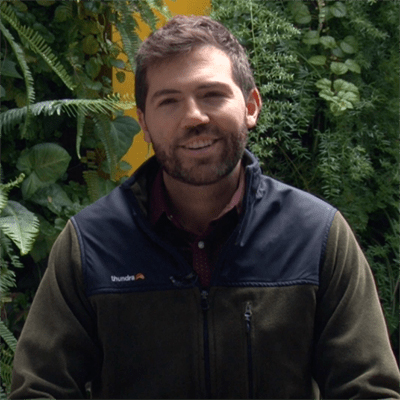
Rodrigo Atuesta


21 proyectos
comunitarios


Thus, in 2017 Destination Bogotá became Impulse Travel. The name change was only the symbolic part of a redirection of a business model that now includes a very clear impact strategy within its structure. Thus, its business is based on offering tours to small groups (of up to 20 people) that have a social impact and that stimulate employment opportunities in the communities. In addition, they realized that income generation was only one part of community tourism, but that behind this there were several complex dynamics that conditioned the success of the impact strategy. Therefore, they began working with the communities on issues of leadership and partnership, in order to make the projects work well internally and independently of Impulse. According to Rodrigo, “the idea is for them to become strong, profitable community enterprises with impact, leadership and growth.
Among the products they offer are those with the HEART name. The H refers to human beings, who are at the center of travel experiences, both the local community and the traveler. The E has to do with the economic opportunities that they facilitate, with the income that other businesses in the communities obtain from the arrival of travelers through the tours. The A refers to authenticity, since Impulse’s tours are unique: “there would be no other way for you to have that experience if not through Impulse, since we have been building relationships for many years that allow us to access certain types of information and unique experiences” (Lizeth Riaño, Impulse Travel). The R comes from “regeneratives” experiences, a word from which the team created the concept of “regenarratives”, since the tours are designed to transform the narrative about the country linked to violence and drug trafficking; through the tours, they want to transform those imaginaries and focus on issues of resilience and social transformation. Finally, the T refers to the concept of “Top Notch”, which means that the products are of very good quality; since it is a service for which the tourist is paying, the experience has to be perfect in all its phases, from the purchase to the post tour.
Así, en 2017 Destino Bogotá pasó a ser Impulse Travel. El cambio de nombre fue solo la parte simbólica de un redireccionamiento de un modelo de negocio que ahora incluye una estrategia de impacto muy clara dentro de su estructura. Así, su negocio se basa en ofrecer tours a grupos pequeños (de máximo 20 personas) que tengan impacto social y que dinamicen las oportunidades laborales de las comunidades. Además, se dieron cuenta que la generación de ingresos solo era una parte del turismo comunitario, pero que detrás de esto había varias dinámicas complejas que condicionaban el éxito de la estrategia de impacto. Por lo tanto, comenzaron a trabajar con las comunidades en temas de liderazgo y de asociatividad, con el fin de que los proyectos funcionen bien internamente y sean independientes de Impulse. Según Rodrigo, “la idea es que se vuelvan unas empresas comunitarias sólidas, rentables, con impacto, liderazgo y crecimiento”.
Entre los productos que ofrecen, se encuentran los que tienen denominación HEART. La H hace referencia a los seres humanos, quienes son el centro de las experiencias de viaje, tanto la comunidad local como el viajero. La E tiene que ver con las oportunidades económicas que facilitan, con los ingresos que obtienen otros negocios de las comunidades por la llegada de viajeros a través de la realización de los tours. La A se refiere a la autenticidad, pues los tours de Impulse son únicos: “no habría otra forma de que tú tuvieras esa experiencia si no es a través de Impulse, pues nosotros hemos venido labrando relaciones desde hace muchos años que nos permiten acceder a cierto tipo de información y experiencias únicas” (Lizeth Riaño, Impulse Travel). La R viene de experiencias “regenerativas”, palabra de la cual el equipo creó concepto de “regenarrativas”, ya que los tours están diseñados para transformar la narrativa sobre el país ligada a violencia y el narcotráfico; a través de los tours, quieren transformar esos imaginarios y enfocarse en temas de resiliencia y transformación social. Por último, la T se refiere al concepto de “Top Notch”, que quiere decir que los productos son de muy buena calidad; al ser un servicio por el cual el turista está pagando, la experiencia tiene que salir perfecta en todas sus fases, desde la compra hasta el post tour.
Así, trabajan directamente con 21 proyectos comunitarios en distintas partes de Colombia. Entre ellos se encuentran Caguán Expeditions, Breaking Borders, Mangle, Moravia Tours, Nina, Son Batá, Unión Latina y Sonidos Enraizados. Las alianzas con estos proyectos se han dado de manera muy distinta: algunas veces los han contactado a través de fundaciones que trabajan con ellos, pero otras veces ha sido a través de encuentros y de búsquedas de aliados.
Al trabajar con comunidades se dieron cuenta que ellos no eran los únicos que podían aportar, sino que sus aliados tenían mucho que enseñarles. Así, Impulse Travel no busca “apadrinar” un proyecto sino simplemente ser un aliado y trabajar en conjunto por un objetivo común. El situarse en el mismo nivel con los proyectos comunitarios ha sido clave para generar relaciones de confianza con estos.
También han realizado intercambios de experiencias de impacto con los proyectos comunitarios. Uno de ellos fue la visita del grupo de Breaking Borders a los proyectos de la Comuna 13 y de Moravia en Medellín. Otro fue la visita que hicieron los excombatientes del Caguán a Breaking Borders en el barrio Egipto, en Bogotá. Según los miembros de Impulse, estos encuentros permiten que los proyectos comunitarios dialoguen entre sí y compartan los aprendizajes que han tenido, lo que repercute en la mejora de la calidad de las experiencias.
Finalmente, en Impulse Travel la paz es concebida como inclusión, acercando las orillas de un país dividido. Partiendo de este punto, creen que desde Impulse aportan a la construcción de paz.
Thus, they work directly with 21 community projects in different parts of Colombia. Among them are Caguán Expeditions, Breaking Borders, Mangrove, Moravia Tours, Nina, Son Batá, Unión Latina and Sonidos Enraizados. Alliances with these projects have occurred in very different ways: sometimes they have been contacted through foundations that work with them, but other times it has been through meetings and the search for allies.
In working with communities, they realized that they were not the only ones who could contribute, but that their allies had much to teach them. Thus, Impulse Travel does not seek to “sponsor” a project but simply to be an ally and work together for a common goal. Being on the same level with the community projects has been crucial to generate trust relationships with them.
They have also exchanged experiences of impact with the community projects. One of these was the visit of the Breaking Borders group to the Comuna 13 and Moravia projects in Medellín. Another was a visit by former combatants from El Caguán to Breaking Borders in the Egipto neighborhood in Bogotá. According to Impulse members, these meetings allow the community projects to dialogue with each other and share the lessons they have learned, thus improving the quality of the experiences.
Finally, at Impulse Travel peace is conceived as inclusion, bringing the shores of a divided country closer together. Starting from this point, they believe that from Impulse they contribute to the construction of peace.

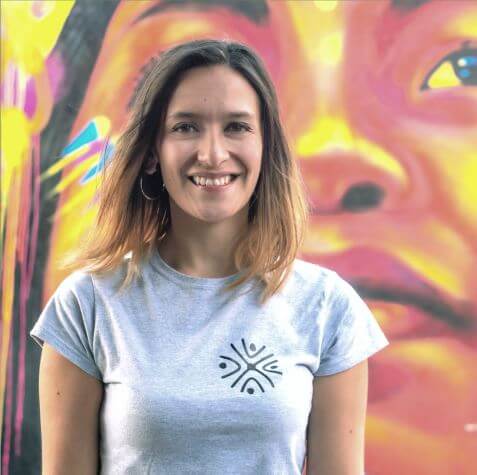
Lizeth Riaño



“Creamos entendimiento mutuo. Nos damos cuenta que las cosas que nos dividen realmente son estructuras mentales heredadas; son ideas que no necesariamente son propias. Nos preguntamos cómo podemos empezar a construir desde la colectividad”
“We create mutual understanding. We realize that the things that divide us are really inherited mental structures; they are ideas that are not necessarily our own. We ask ourselves how we can begin to build from the collective”

+ Impulse Travel
+






